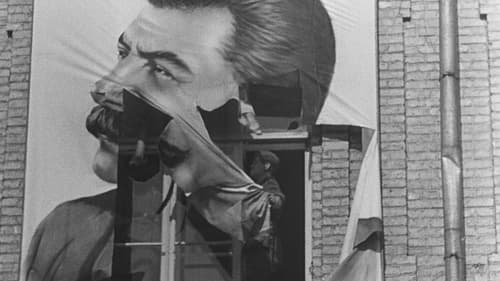
Associate Producer
Nazi troops massacre 30,000 Jews over a three-day period in September 1941. Babyn Yar ravine in Kyiv, Ukraine.
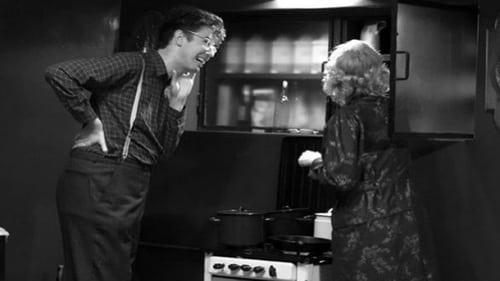
Screenplay
Alienated from the rest of the scientific Institute in which they live, a lonely housewife and her teenage son break the ultimate taboo, with only their submissive maid to bear witness.

Director
Alienated from the rest of the scientific Institute in which they live, a lonely housewife and her teenage son break the ultimate taboo, with only their submissive maid to bear witness.

Himself (archive footage)
The film is about the long-term relationship between the director and the character of her first film, the French indie artist, musician and director Siegfried, known as Sig. The story is dedicated to the experience of growing up, emancipation and finding their own identity in life and in art. The film raises questions about the nature of the student-teacher relationship, which inevitably involves submission and conflict, and the nature of the director and hero relationship, which is based on love and a little manipulation.

Screenplay
Two scientists grow old and weary together in a secret Soviet Institute, their unconventional friendship the only consistency in a lifetime of personal and professional disappointments.

Director
Two scientists grow old and weary together in a secret Soviet Institute, their unconventional friendship the only consistency in a lifetime of personal and professional disappointments.

Screenplay
Sasha, a young janitor, notices a certain softness and kindness in an older janitor. In a small, secluded room, away from their colleagues, the two men waver between resisting and giving in to their feelings and desires, walking a tightrope between violent tendencies and a need for tenderness.

Director
Sasha, a young janitor, notices a certain softness and kindness in an older janitor. In a small, secluded room, away from their colleagues, the two men waver between resisting and giving in to their feelings and desires, walking a tightrope between violent tendencies and a need for tenderness.

Screenplay
Maxim and his comrades-in-arms are participating in top-secret experiments into the creation of a new man. The employees of the secret Institute are characterised by everything Maxim detests: alcoholism, depravity, weak will, loss of ideals, and lack of faith in the future. Vika, one of the waitresses in the Institute's cafeteria, falls in love with the young communist, though she is scared by his fascination with eugenics and his violent tendencies. Vika hopes that her passion and tenderness will soften Maxim, while the state security agents keep a watchful eye on their developing relationship.

Director
Maxim and his comrades-in-arms are participating in top-secret experiments into the creation of a new man. The employees of the secret Institute are characterised by everything Maxim detests: alcoholism, depravity, weak will, loss of ideals, and lack of faith in the future. Vika, one of the waitresses in the Institute's cafeteria, falls in love with the young communist, though she is scared by his fascination with eugenics and his violent tendencies. Vika hopes that her passion and tenderness will soften Maxim, while the state security agents keep a watchful eye on their developing relationship.
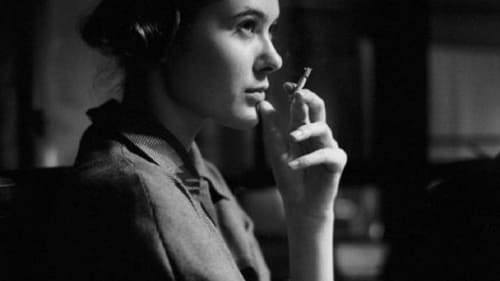
Producer
Katya, a young librarian, believes in love, but her ideals are crushed by reality. After a string of disappointing affairs, Katya finally finds tenderness and understanding in the arms of her colleague, a journalist called Tanya. But then the First Department interferes: the state security services see this relationship as unacceptable for a Soviet woman.

Screenplay
Katya, a young librarian, believes in love, but her ideals are crushed by reality. After a string of disappointing affairs, Katya finally finds tenderness and understanding in the arms of her colleague, a journalist called Tanya. But then the First Department interferes: the state security services see this relationship as unacceptable for a Soviet woman.

Director
Katya, a young librarian, believes in love, but her ideals are crushed by reality. After a string of disappointing affairs, Katya finally finds tenderness and understanding in the arms of her colleague, a journalist called Tanya. But then the First Department interferes: the state security services see this relationship as unacceptable for a Soviet woman.

Producer
Within the top secret Institute of Physics Problems, the scientist Nikita Nekrasov is visited by his wife and small children. While away from his family the physicist has managed to fall in love with other women. In open conversations with his spouse – in the bedroom, the dining room, and while out walking – he attempts to convince her of the legitimacy of polygamous relationships, and to test the limits of her unconditional love.

Producer
Nikita Nekrasov is a scientist, a theoretical physicist who studies our world and other possible worlds. He refuses to make a choice between mathematics and physics, between one woman and another, as he ponders the existence of the multi-universe. At scientific conferences, attended by eminent foreign scientists and a rising younger generation of physicists alike, Nekrasov gets carried away debating the beauty of string theory. He attempts to explain to all of his women – Katya, the librarian, Zoya, the scientific secretary, Svetalana, the head of department – about the theory of his own polygamy, and the possibility of having enough feelings to satisfy everyone.

Screenplay
Within the top secret Institute of Physics Problems, the scientist Nikita Nekrasov is visited by his wife and small children. While away from his family the physicist has managed to fall in love with other women. In open conversations with his spouse – in the bedroom, the dining room, and while out walking – he attempts to convince her of the legitimacy of polygamous relationships, and to test the limits of her unconditional love.

Director
Within the top secret Institute of Physics Problems, the scientist Nikita Nekrasov is visited by his wife and small children. While away from his family the physicist has managed to fall in love with other women. In open conversations with his spouse – in the bedroom, the dining room, and while out walking – he attempts to convince her of the legitimacy of polygamous relationships, and to test the limits of her unconditional love.

Screenplay
Nikita Nekrasov is a scientist, a theoretical physicist who studies our world and other possible worlds. He refuses to make a choice between mathematics and physics, between one woman and another, as he ponders the existence of the multi-universe. At scientific conferences, attended by eminent foreign scientists and a rising younger generation of physicists alike, Nekrasov gets carried away debating the beauty of string theory. He attempts to explain to all of his women – Katya, the librarian, Zoya, the scientific secretary, Svetalana, the head of department – about the theory of his own polygamy, and the possibility of having enough feelings to satisfy everyone.

Director
Nikita Nekrasov is a scientist, a theoretical physicist who studies our world and other possible worlds. He refuses to make a choice between mathematics and physics, between one woman and another, as he ponders the existence of the multi-universe. At scientific conferences, attended by eminent foreign scientists and a rising younger generation of physicists alike, Nekrasov gets carried away debating the beauty of string theory. He attempts to explain to all of his women – Katya, the librarian, Zoya, the scientific secretary, Svetalana, the head of department – about the theory of his own polygamy, and the possibility of having enough feelings to satisfy everyone.

Screenplay
It is 1953, Stalin has just died. It is a troubled and uncertain period for the whole of the Soviet Union, particularly for the state security services. In the Institute, a secret research facility, the scientists continue their theoretical and experimental work. Every night they strain their ears to listen for footsteps in the dark corridors: who have they come for this time? Who has reported on who? Having survived the fear and humiliation of an interrogation, the Head of the Theoretical Department, Andrei Losev, refuses to cooperate with the security services, only to face a new ordeal back in his own home.

Director
It is 1953, Stalin has just died. It is a troubled and uncertain period for the whole of the Soviet Union, particularly for the state security services. In the Institute, a secret research facility, the scientists continue their theoretical and experimental work. Every night they strain their ears to listen for footsteps in the dark corridors: who have they come for this time? Who has reported on who? Having survived the fear and humiliation of an interrogation, the Head of the Theoretical Department, Andrei Losev, refuses to cooperate with the security services, only to face a new ordeal back in his own home.
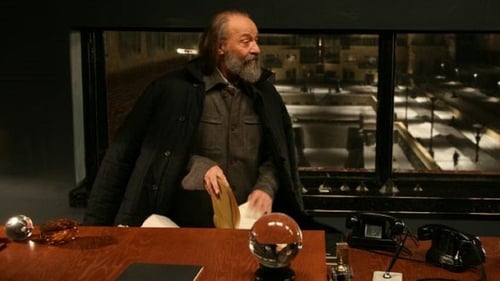
Screenplay
«The Return of the Prodigal Son» is the first volume from the film (novel) of Anatoli Vassiliev’s «Empire» inside the Dau cycle. The story is about inner kinship, which is much closer than blood, about inevitable betrayal, about almost fatherly love and forgiveness. Cigarettes (papirossa), images from «Faust» and «Don Juan», walks in the Soviet Park of culture... And a terrible, narrow gap inside the brutal regime where you have to be skilled enough to survive... Yes! and they also play gorodki (skittles) with childish passion!

Director
«The Return of the Prodigal Son» is the first volume from the film (novel) of Anatoli Vassiliev’s «Empire» inside the Dau cycle. The story is about inner kinship, which is much closer than blood, about inevitable betrayal, about almost fatherly love and forgiveness. Cigarettes (papirossa), images from «Faust» and «Don Juan», walks in the Soviet Park of culture... And a terrible, narrow gap inside the brutal regime where you have to be skilled enough to survive... Yes! and they also play gorodki (skittles) with childish passion!

Screenplay
«The Empire» is a film in the genre of a novel, in four books. «The Return of the Prodigal Son», «War and Peace», «The Big Bang», lasting 8.5 hours. These are the dialogues of the two protagonists — Krupitsa and Dau — and scenes from the life of the Institute of Physical Problems (from the year 38 to 52). The Big Terror, Power and Man, Revolution and War, Christianity, Buddhism, Shamanism, the Atomic Bomb, Scientists and Physicists, etc. «State security warriors», wives, girlfriends, employees — that is the theme of the novel, which tells the story of the destiny and resistance of a genius in the era of dystopian Empire.

Director
«The Empire» is a film in the genre of a novel, in four books. «The Return of the Prodigal Son», «War and Peace», «The Big Bang», lasting 8.5 hours. These are the dialogues of the two protagonists — Krupitsa and Dau — and scenes from the life of the Institute of Physical Problems (from the year 38 to 52). The Big Terror, Power and Man, Revolution and War, Christianity, Buddhism, Shamanism, the Atomic Bomb, Scientists and Physicists, etc. «State security warriors», wives, girlfriends, employees — that is the theme of the novel, which tells the story of the destiny and resistance of a genius in the era of dystopian Empire.

Screenplay
It is 1956. Dau is a distinguished Soviet scientist who meets up with the love of his youth – Maria, a Greek actress – during her three day visit to Moscow. They haven't seen each other for 25 years. Dau is a successful and prosperous scientist, but feels excruciatingly dissatisfied with his family life. Through Maria he hopes to regain lost harmony and beauty, but reality intrudes when Nora, Dau's wife, returns home.

Director
It is 1956. Dau is a distinguished Soviet scientist who meets up with the love of his youth – Maria, a Greek actress – during her three day visit to Moscow. They haven't seen each other for 25 years. Dau is a successful and prosperous scientist, but feels excruciatingly dissatisfied with his family life. Through Maria he hopes to regain lost harmony and beauty, but reality intrudes when Nora, Dau's wife, returns home.
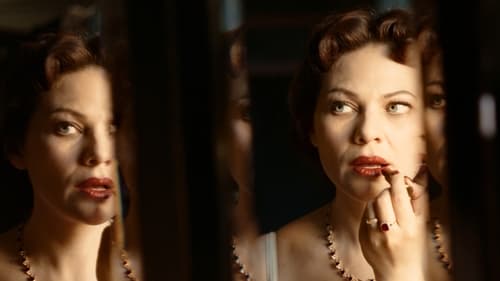
Screenplay
Once just a girl from the provinces, Nora is now married to a successful scientist and lives together with her family within the confines of a secret and privileged Moscow institute. Nora is visited by her mother for the first time since her wedding. Her mother closely observes the atmosphere within the couple's home, trying to work out whether her daughter is happy. During the course of their intimate conversations the complexity of their contradictory relationship is revealed.

Director
Once just a girl from the provinces, Nora is now married to a successful scientist and lives together with her family within the confines of a secret and privileged Moscow institute. Nora is visited by her mother for the first time since her wedding. Her mother closely observes the atmosphere within the couple's home, trying to work out whether her daughter is happy. During the course of their intimate conversations the complexity of their contradictory relationship is revealed.
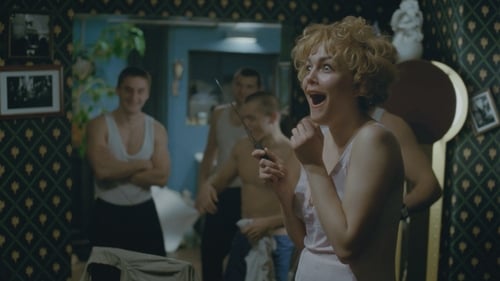
Writer
A secret Soviet Institute conducts scientific and occult experiments on animals and human beings to create the perfect person. The KGB general and his aides turn a blind eye to erotic adventures of the director of the Institute, scandalous debauches of prominent scientists and their cruel and insane research. One day, a radical ultra right-wing group arrives in the laboratory under the guise of test subjects. They get a task - to eradicate the decaying elements of the Institute’s community, and if needs be, destroy the fragile world of secret Soviet science.

Director
A secret Soviet Institute conducts scientific and occult experiments on animals and human beings to create the perfect person. The KGB general and his aides turn a blind eye to erotic adventures of the director of the Institute, scandalous debauches of prominent scientists and their cruel and insane research. One day, a radical ultra right-wing group arrives in the laboratory under the guise of test subjects. They get a task - to eradicate the decaying elements of the Institute’s community, and if needs be, destroy the fragile world of secret Soviet science.
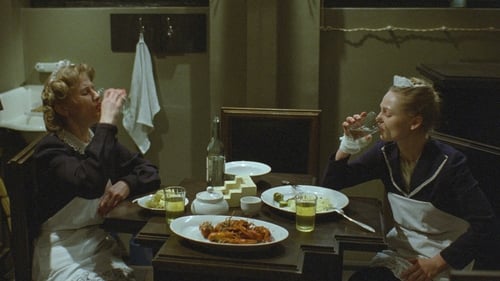
Screenplay
Natasha runs the canteen at a secret 1950s Soviet research institute. This is the beating heart of the DAU universe, everyone drops in here: the institute's employees, scientists and visiting foreign guests. Natasha's world is a small one, split between the demands of the canteen during the day and alcohol fuelled nights with her younger colleague Olga, during which the two confide their hopes of romance and for a different future. At a party one evening Natasha becomes close to a visiting French scientist Luc Bige and the two sleep together. The following day her life takes a dramatic turn when she is summoned to an interrogation by the KGB's General Vladimir Azhippo who questions the nature of her relationship with the foreign guest.

Director
Natasha runs the canteen at a secret 1950s Soviet research institute. This is the beating heart of the DAU universe, everyone drops in here: the institute's employees, scientists and visiting foreign guests. Natasha's world is a small one, split between the demands of the canteen during the day and alcohol fuelled nights with her younger colleague Olga, during which the two confide their hopes of romance and for a different future. At a party one evening Natasha becomes close to a visiting French scientist Luc Bige and the two sleep together. The following day her life takes a dramatic turn when she is summoned to an interrogation by the KGB's General Vladimir Azhippo who questions the nature of her relationship with the foreign guest.

Director
Biographical film, epically depicting the life of the famous scientist Lev Landau.

Himself
In honor of the twentieth anniversary of Andrei Tarkovsky's death, student filmmaker Dmitry Trakovsky sets out in search of his favorite director's legacy. His journey leads him to fifteen moving interviews in California, Italy, Sweden, and finally, Russia as he attempts to come closer to the meaning of one of Tarkovsky's most enigmatic beliefs... that death doesn't exist.

Director
Two men and a woman happen to meet in a bar. We learn from their conversations both the intriguing and banal details of their lives. But is anyone really telling the truth?

Producer
A rich and fatally ill man with an apartment, a car and a summer house offers her a girl's hand, heart and all real estate ". The next day after the announcement in the newspaper, a line of contenders lined up for Andrei. They all want to prove that they are in love with him .

Producer
Seven interconnecting stories that take place in Russian bedrooms. These include a son visiting his complaining bedridden mother, a middle-aged couple bickering, one soldier bullying another in an army barracks, a rich childless housewife picking up the soldier for rough sex while her husband has a tryst with another man arranged by computer, and a wife who asks to be handcuffed to her bed while being videotaped by her lover.

Screenplay
Metaphor: the train stopped, love stopped, life stopped, time stopped...

Director
Metaphor: the train stopped, love stopped, life stopped, time stopped...
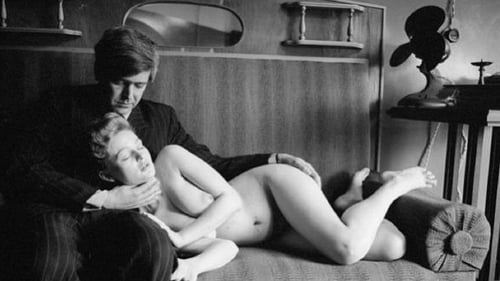
Screenplay
A mathematician in a secret Soviet research Institute believes that ayahuasca is the key to unlocking all the potential of the quantum universe, but its nightmarish visions also foreshadow his tragic demise.

Director
A mathematician in a secret Soviet research Institute believes that ayahuasca is the key to unlocking all the potential of the quantum universe, but its nightmarish visions also foreshadow his tragic demise.

















